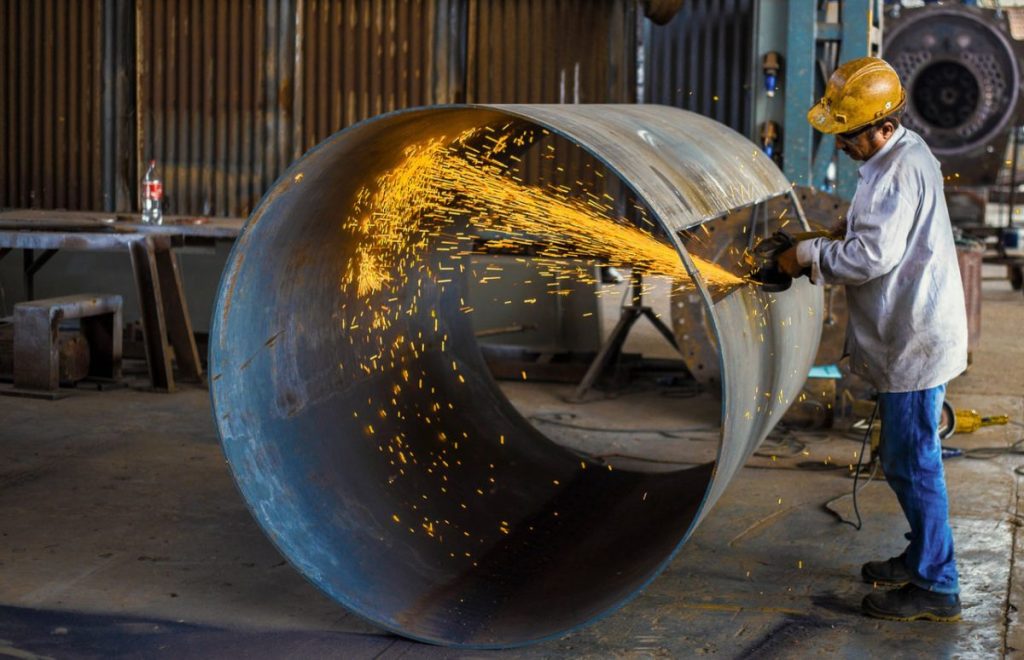
- Business Interruption is #1 with 58% of responses. Climate Change is #2 with 42% of responses.
- Cyber Incidents is #3 with 32% of responses. Energy Crisis is #4 with 26% of responses.
- Critical Infrastructure is #5 with 21% of responses.
- Addressing these risks is essential for maintaining the sector’s stability and growth.
Johannesburg – The Allianz Risk Barometer 2024 has identified the top five risks confronting the heavy industry sector e.g., infrastructure building, steel production, mining etc., highlighting critical challenges that require immediate action from stakeholders in the industry. The top risks include business interruption, climate change, cyber incidents, energy crisis, and critical infrastructure vulnerabilities. Addressing these risks is essential for maintaining the sector’s stability and growth. The report, based on insights from over 3,000 risk management professionals and business leaders, highlights the growing importance of addressing these risks to ensure business continuity and safeguard against potential disruptions.
1. Business Interruption (#1, 58% of responses)
Business interruption remains the foremost risk in the heavy industry sector. Disruptions in supply chains, operational downtimes, and logistical challenges can lead to significant financial losses and project delays. To mitigate this risk, companies must develop comprehensive business continuity plans, invest in predictive maintenance technologies, and diversify their supply chains. Regular risk assessments and scenario planning are also crucial in ensuring preparedness for potential disruptions.
2. Climate Change (#2, 42% of responses)
Climate change poses a substantial threat to the heavy industry, affecting everything from resource availability to operational conditions. Extreme weather events and changing environmental regulations can disrupt operations and increase costs. Mitigation strategies include investing in sustainable practices, reducing carbon emissions, and enhancing the resilience of facilities to withstand climate impacts. Incorporating renewable energy sources and improving energy efficiency are also key measures in addressing climate-related risks.
3. Cyber Incidents (#3, 32% of responses)
Cyber incidents, including data breaches and ransomware attacks, rank as a major risk for the heavy industry. The increasing reliance on digital systems and Internet of Things devices makes the sector vulnerable to cyber threats. To mitigate this risk, companies should invest in robust cybersecurity frameworks, conduct regular vulnerability assessments, and implement multi-layered security protocols. Employee training on cybersecurity best practices and incident response plans are essential components of a comprehensive cybersecurity strategy.
4. Energy Crisis (#4, 26% of responses)
An energy crisis poses significant risks to the heavy industry, potentially leading to operational halts and increased production costs. To address this risk, companies should explore alternative energy sources, such as renewable energy and backup power solutions. Enhancing energy efficiency through technology upgrades and optimizing energy consumption can also mitigate the impact of energy shortages. Engaging in long-term energy procurement contracts and diversifying energy supply sources can provide additional stability.
5. Critical Infrastructure (#5, 21% of responses)
Vulnerabilities in critical infrastructure, including transportation networks, power grids, and communication systems, can severely impact the heavy industry. Ensuring the resilience of these infrastructures is paramount. Companies should collaborate with government agencies and infrastructure providers to enhance the security and reliability of essential services. Investing in infrastructure upgrades, adopting advanced monitoring technologies, and developing contingency plans for infrastructure failures are key strategies for mitigating this risk.
Mitigation Strategies and Industry Collaboration
Addressing these top risks requires a multifaceted approach and collaboration across the heavy industry sector. Companies should:
1. Develop Resilient Supply Chains: Implement diversified and flexible supply chain strategies to minimize disruptions.
2. Invest in Technology: Adopt advanced technologies for predictive maintenance, cybersecurity, and energy management.
3. Enhance Sustainability: Focus on sustainable practices and climate resilience to address environmental challenges.
4. Strengthen Infrastructure: Collaborate with stakeholders to ensure the robustness of critical infrastructure.
5. Engage in Continuous Risk Management: Regularly assess and update risk management plans to adapt to evolving threats.
By proactively addressing these risks, the heavy industry in Africa and the Middle East can enhance its resilience, ensure operational continuity, and drive sustainable growth.



